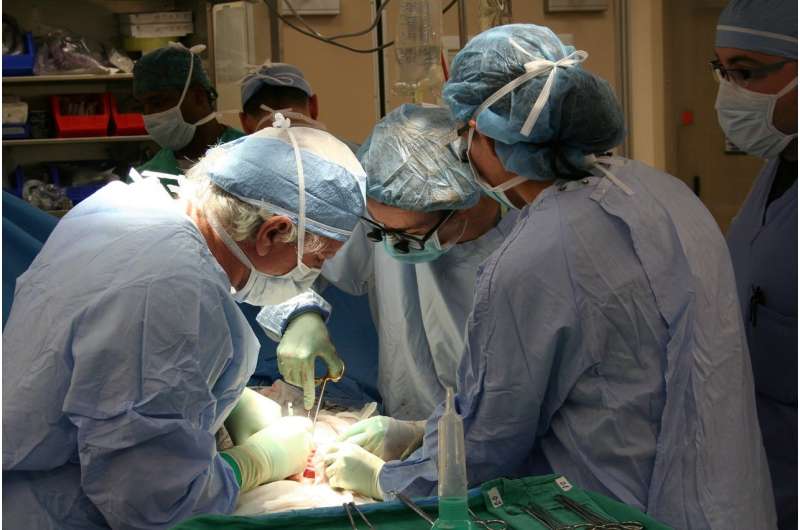Credit: CC0 Public Domain
An environmentally responsible formulation process that makes the immunosuppressant drug, Tacrolimus (TAC) more soluble, and hence more readily absorbed by the body, has been developed by A*STAR scientists.
Tacrolimus, despite offering a lifeline to recipients of organ transplants, is poorly utilized by the body due to its insolubility and rapid degradation by intestinal enzymes. To overcome this, patients have to take higher doses of the expensive, rejection-blocking drug, resulting in an increased risk of side-effects.
"Our idea was to improve solubility by using the amorphous form of the drug," explains Parijat Kanaujia, from A*STAR's Institute of Chemical and Engineering Sciences, the lead investigator on the study.
The team used a process called hot melt extrusion to break the crystalline molecular lattice of TAC down into a disordered structure, which dissolves much more readily. To prevent the amorphous TAC from rearranging back into its naturally favored crystalline structure, Kanaujia and his team created formulations with three different stabilizing polymers, which provide the added benefit of extra solubility, thanks to their hydrophilic properties.
In tests, all three formulations showed markedly increased dissolution rates, releasing more than 80 per cent of their TAC in 15 minutes. In comparison, standard crystalline TAC releases just 5 per cent of its pharmacologically active molecules in two hours. Kanaujia says that their hypothesis, to be confirmed in future studies, is that the rapid release will lead to rapid absorption and therefore less intestinal enzyme degradation. TAC-containing orally disintegrating tablets, designed to dissolve under the tongue, stood up against three months of storage stability tests, retaining their properties.
The team's study was made possible thanks to a GlaxoSmithKline Green and Sustainable Manufacturing grant, a Singaporean fund which helps fund research that furthers sustainable manufacturing. "Usually people dissolve TAC in a solvent before precipitating the molecule out in its amorphous form," says Kanaujia. "But the melt extruder doesn't use any solvent, so it isn't environmentally harmful."
Kanaujia and his team are looking for a commercial partner to help them start moving their discovery from the bench to the clinic. As anti-rejection drugs such as TAC are taken for the rest of a transplant recipient's life, a reduction in dose facilitated by increased efficiency could offer a huge impact in terms of cost, and in terms of dose-mediated side effects. Additionally, tablets that don't require swallowing offer a less stressful medication experience for children, the elderly, and patients who have difficulty swallowing.
More information: Poovizhi Ponnammal et al. Orally Disintegrating Tablets Containing Melt Extruded Amorphous Solid Dispersion of Tacrolimus for Dissolution Enhancement, Pharmaceutics (2018). DOI: 10.3390/pharmaceutics10010035























